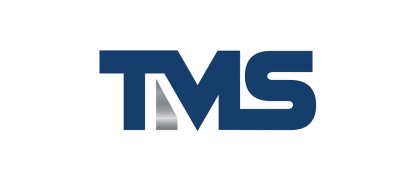What is ISO 9001?
In today’s competitive landscape, businesses are constantly seeking ways to enhance efficiency, improve customer satisfaction, and gain a competitive edge. One powerful tool that can help achieve these goals is ISO 9001, the internationally recognized standard for Quality Management Systems (QMS). But what exactly is ISO 9001, and how can it benefit your organization? Let’s dive deep into this essential standard and explore its significance in 2025.
ISO 9001 is a globally recognized standard published by the International Organization for Standardization (ISO). It outlines the requirements for a QMS that organizations can use to consistently provide products and services that meet customer and regulatory requirements. Unlike product-specific standards, ISO 9001 focuses on the processes and systems that underpin quality.
Key Principles of ISO 9001:
ISO 9001 is based on seven key quality management principles:
-
Customer Focus: Understanding and meeting customer needs and expectations.
-
Leadership: Establishing unity of purpose and direction.
-
Engagement of People: Involving competent, empowered, and engaged individuals.
-
Process Approach: Managing activities as interconnected processes.
-
Improvement: Continuously enhancing performance.
-
Evidence-based Decision Making: Basing decisions on factual data and analysis.
-
Relationship Management: Building and maintaining mutually beneficial relationships with interested parties.
Benefits of ISO 9001 Certification:
Implementing and achieving ISO 9001 certification can bring numerous benefits to your organization, including:
-
Improved Customer Satisfaction: By focusing on customer needs and consistently delivering quality products and services, you can enhance customer satisfaction and loyalty.
-
Increased Efficiency and Productivity: Streamlined processes and reduced errors lead to increased efficiency and productivity.
-
Enhanced Operational Performance: A well-defined QMS helps to identify and eliminate inefficiencies, leading to improved operational performance.
-
Reduced Costs: By minimizing waste and errors, you can reduce costs associated with rework, returns, and complaints.
-
Improved Risk Management: ISO 9001 helps organizations identify and mitigate risks, ensuring business continuity.
-
Enhanced Reputation and Credibility: ISO 9001 certification demonstrates your commitment to quality, enhancing your reputation and credibility.
-
Increased Market Access: Many organizations and government agencies require ISO 9001 certification for suppliers, opening up new market opportunities.
-
Consistent Quality: ISO 9001 ensures that products and services are consistently delivered to a high standard.
-
Better Employee Engagement: By clearly defining roles, responsibilities, and processes, you can improve employee engagement and morale.
The ISO 9001 Certification Process:
Achieving ISO 9001 certification involves several key steps:
-
Gap Analysis: Assess your current processes and identify gaps between your existing system and the requirements of ISO 9001.
-
Documentation: Develop and document your QMS, including policies, procedures, work instructions, and records.
-
Implementation: Implement the documented QMS throughout your organization.
-
Internal Audit: Conduct internal audits to ensure the QMS is working effectively.
-
Management Review: Review the QMS to ensure its continued suitability, adequacy, and effectiveness.
-
Certification Audit: Engage a third-party certification body to conduct a certification audit.
-
Certification: If the audit is successful, you will receive ISO 9001 certification.
-
Continual Improvement: Regularly review and improve your QMS to maintain certification and enhance performance.
Why ISO 9001 Matters in 2025:
In the rapidly evolving business landscape of 2025, ISO 9001 remains more relevant than ever. Here’s why:
-
Increased Customer Expectations: Customers are increasingly demanding high-quality products and services. ISO 9001 helps organizations meet and exceed these expectations.
-
Global Competition: In a globalized market, ISO 9001 certification provides a competitive advantage by demonstrating your commitment to quality.
-
Supply Chain Resilience: ISO 9001 helps organizations build robust and resilient supply chains by ensuring consistent quality throughout the process.
-
Digital Transformation: ISO 9001 can be integrated with digital technologies to enhance efficiency and improve data management.
-
Sustainability: ISO 9001 can be aligned with sustainability goals by promoting efficient resource utilization and waste reduction.
-
Risk Management: With increased volatility in the market, effective risk management is crucial. ISO 9001 provides a framework for identifying and mitigating risks.
-
Regulatory Compliance: ISO 9001 can help organizations meet regulatory requirements and demonstrate due diligence.
Choosing the Right Certification Body:
Selecting a reputable and accredited certification body is crucial for a successful ISO 9001 certification process. Consider the following factors:
-
Accreditation: Ensure the certification body is accredited by a recognized accreditation body.
-
Experience: Choose a certification body with experience in your industry.
-
Reputation: Research the certification body’s reputation and customer reviews.
-
Cost: Compare the costs of different certification bodies.
-
Customer Service: Evaluate the certification body’s customer service and responsiveness.
Relevant Institutions and Links:
TMS CEE: Webpage TMS CEE o ISO 9001.
ISO (International Organization for Standardization):
- www.iso.org
- Specific link regarding ISO 9001: https://www.iso.org/iso-9001-quality-management.html
IAF (International Accreditation Forum):
- Link: www.iaf.nu
EA (European co-operation for Accreditation):
CEN (European Committee for Standardization):
- Link: www.cen.eu
European Commission:
- Link: ec.europa.eu
ATS (Accreditation Body of Serbia):
- Link: www.ats.rs




